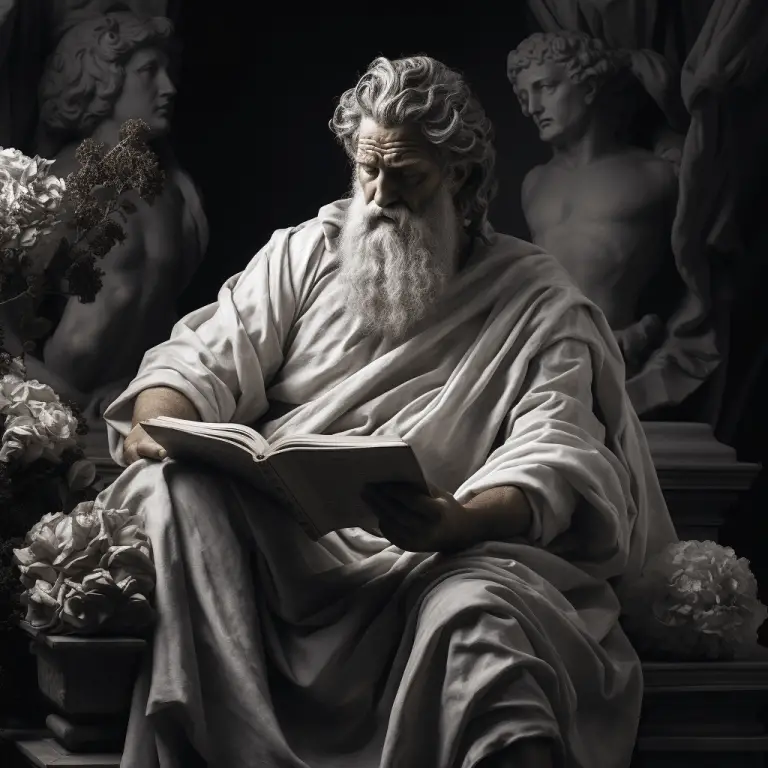What is enlightenment Plato? Plato, the renowned Greek philosopher, delves into the concept of enlightenment in his seminal work “The Republic.” In Book VII, he presents an allegory known as “The Allegory of the Cave,” which offers profound insights into human perception and the pursuit of true reality.
In this allegory, Plato explores the idea that human beings are initially trapped inside a dark cave, with their only source of knowledge coming from shadows cast on a cave wall. These shadows represent mere reflections or illusions of objects in the outside world. This state represents our former state of ignorance and limited understanding.
Plato asks us to imagine what would happen if one person were to break free from these confines and venture into the outer world. Initially blinded by sunlight, this individual would gradually grow accustomed to their newfound surroundings and experience enlightenment as they witness the true reality beyond the cave.
What Is Enlightenment Plato?
According to Plato, this journey upward symbolizes our intellectual ascent towards philosophical enlightenment. As we ascend towards the upper world or intellectual realm (also called the heavenly bodies or intellectual world), we begin to grasp universal truths and transcend our limited perceptions shaped by common sense and societal conditioning.
Plato argues that true enlightenment can only be attained through rigorous philosophical inquiry and contemplation. He believes that there exists a natural order governed by universal laws (natural law) that transcends mere appearances in the visible world (material world).
In Plato’s view, human faculties such as sensory perception are prone to deception and can lead us astray from experiencing reality in its purest form. To achieve true enlightenment, we must turn our souls away from immediate sources of information like sensory experiences and seek knowledge through reason and introspection.
This concept resonates with later thinkers during periods like the French Enlightenment who emphasized reason over dogma in their pursuit of truth. It also bears similarities to modern ideas explored in movies like “The Truman Show,” where an individual’s entire life is shaped by an artificial reality, akin to the prisoners in Plato’s cave.
Plato’s allegory of the cave challenges us to question our understanding of reality and the nature of enlightenment. It reminds us that true knowledge lies beyond the illusions of the material world and calls upon us to embark on a journey towards philosophical enlightenment.
Plato explores how this journey upwards towards enlightenment requires breaking free from our former state of ignorance and expanding our intellectual faculties. Just as Socrates believed that philosophy was essential for self-discovery and personal growth, Plato argues that philosophical enlightenment allows individuals to transcend their limited perceptions and grasp universal truths about human life and nature.
In “The Republic,” Plato presents his ideal society ruled by philosopher kings who have undergone this transformative experience. These enlightened leaders possess knowledge not only about individual matters but also about natural laws governing society as a whole.
Plato’s theory on enlightenment challenges common sense notions by suggesting that what we perceive with our senses may not always reflect truth or reality. He encourages us to question our assumptions and look beyond appearances in order to attain genuine knowledge.
This concept resonates with later thinkers such as those in the French Enlightenment who sought intellectual liberation from dogma and superstition. Like “The Truman Show” where Truman eventually breaks free from his constructed reality, Plato’s allegory invites us to escape our own “prison house” of limited perspectives and venture towards a higher understanding.
In conclusion, Plato’s theory on enlightenment emphasizes the need for individuals to break free from the confines of their limited perceptions and explore the true nature of reality. By engaging in philosophical inquiry and questioning our assumptions, we can embark on a transformative journey that leads us towards genuine knowledge and enlightenment.
